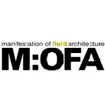
National Institute of Water Sports
ARCHITECTS
M:ofa Studios
LEAD ARCHITECT
Manish Gulati
MANUFACTURERS
Saint-gobain, Armwood, Insuboard, Jaquar, Johnson Endura, Philips, Tata Bluescope Lysaght
STRUCTURAL ENGINEER
Delf Consulting Engineers
PROJECT MANAGEMENT
Jade Consultants
QUANTITY SURVEY
Jade Consultants
ELECTRICAL CONSULTANTS
Engineering Consultancy & Management Service
CIVIL CONTRACTOR
Ramjidas Construction Pvt Ltd
INTERIORS CONTRACTOR
Virender Kumar & Associates
SENIOR ASSOCIATE
Abhishek Sorampuri, Anuj Mittal
JUNIOR ASSOCIATE
Saurabh Singla, Aakanksha Hajela
PRINCIPAL PLANNER
Tanushree Verma
INTERIOR DESIGN
Sonakshi Madan
PROGRAM / USE / BUILDING FUNCTION
Sports Institution
PLUMBING CONSULTANTS
Behera & Associates
LOCATION
Panaji, India
CATEGORY
Sports Architecture, Institute
Government institutions in India usually follow a pragmatic, understated approach when it comes to the expression of their architecture. When Goa State govt.
Floated an international level competition for the design of the National Institute of Water Sports in Goa, it wanted the institute to do two things:.
Firstly, to make a bold, iconic statement with an expression that treats the architecture beyond the functional pragmatism and secondly, takes a fresh approach to the typical Goan Architectural setting a language that’s more global yet grounded while resonating the vernacular, through the use of local materials.
While the institutional, administrative, residential, and recreational functions retained their individual zones, the space between them would be rather fluid and continuous, thereby creating these in-between sub-functions essential for those informal interactions between various groups of people, defined by their roles on the campus.
For the overall language, we searched for an expression that connects the architecture to its broader context of the sea and the Goan town that resides alongside it.
Adventure water sports are perceived as leisure activities; on the other hand, institutes usually tend to box in formal functions from the informal.
Here, the surfers, who find the thrill in the sea, in order to retain their attention within the classrooms temporarily disconnected from that rush, attempted to translate that adrenaline and the constant tension created between the forces of the sea and the surfers engulfed within them.
It was important to create this fine balance between the practical day-to-day functionality and maintaining this constant dynamism.
The architecture for NIWS is inspired by the dynamic nature of the sea. It erupts, rises, and folds into a series of trochoidal waves, ready to engulf everything that comes its way.
Viewed from above, it appears like a mythical creature born from the adjoining Arabian Sea, mimicking its nature.
While, from the ground, within its spaces, it appears to be in constant motion with its shifting perspectives.
The eye doesn’t rest at a single point; with its multiple points of view and continuous movement spine, the architecture intends to blur the perceptible notions of its elements.
The walls, floor plates, and roofs indulge in this fluid dialogue at various points that, once rendered by the ever-changing play of light and shadows, create this tense, disruptive narrative for its users like a theatre where motion is a constant and the pause is a search.
The architecture, thus, becomes a conduit, ensuring it's not a static structure but a lively inspiration for adventurers gearing up for water sports.
The building's constant motion is captured through the digital fabrication of the mega roof structure clad using color-coated roofing sheets, allowing cost control in a government project with a limited budget.
Resolved as a grid shell structure using trapezoidal paneling; the 4000 sq m. roof for NIWS drapes the entire complex like a free-flowing wave.
Comprising more than 15000 pipes of varying lengths, the structure is constructed in smaller part modules, large enough to be lifted & put in place manually.
Over 5000 customized roof panels, each with a unique shape and size, were CNC cut and folded to fit together like a jigsaw puzzle over the large parametric wave roof.
The assembly creates continuous gutters, ensuring unobstructed water flow and making it one of the most complex digitally fabricated roofs in India.































